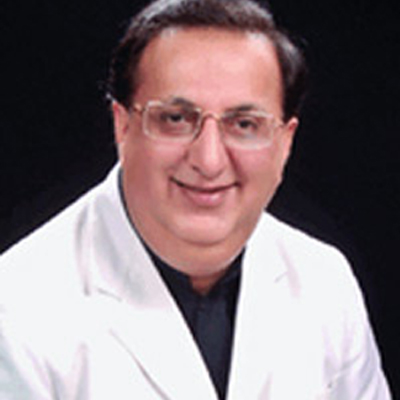- Home
- Medical news & Guidelines
- Anesthesiology
- Cardiology and CTVS
- Critical Care
- Dentistry
- Dermatology
- Diabetes and Endocrinology
- ENT
- Gastroenterology
- Medicine
- Nephrology
- Neurology
- Obstretics-Gynaecology
- Oncology
- Ophthalmology
- Orthopaedics
- Pediatrics-Neonatology
- Psychiatry
- Pulmonology
- Radiology
- Surgery
- Urology
- Laboratory Medicine
- Diet
- Nursing
- Paramedical
- Physiotherapy
- Health news
- Fact Check
- Bone Health Fact Check
- Brain Health Fact Check
- Cancer Related Fact Check
- Child Care Fact Check
- Dental and oral health fact check
- Diabetes and metabolic health fact check
- Diet and Nutrition Fact Check
- Eye and ENT Care Fact Check
- Fitness fact check
- Gut health fact check
- Heart health fact check
- Kidney health fact check
- Medical education fact check
- Men's health fact check
- Respiratory fact check
- Skin and hair care fact check
- Vaccine and Immunization fact check
- Women's health fact check
- AYUSH
- State News
- Andaman and Nicobar Islands
- Andhra Pradesh
- Arunachal Pradesh
- Assam
- Bihar
- Chandigarh
- Chattisgarh
- Dadra and Nagar Haveli
- Daman and Diu
- Delhi
- Goa
- Gujarat
- Haryana
- Himachal Pradesh
- Jammu & Kashmir
- Jharkhand
- Karnataka
- Kerala
- Ladakh
- Lakshadweep
- Madhya Pradesh
- Maharashtra
- Manipur
- Meghalaya
- Mizoram
- Nagaland
- Odisha
- Puducherry
- Punjab
- Rajasthan
- Sikkim
- Tamil Nadu
- Telangana
- Tripura
- Uttar Pradesh
- Uttrakhand
- West Bengal
- Medical Education
- Industry
88% Delhiites suffer from Vitamin D deficiency: ASSOCHAM

As per Dr H K Chopra, Co-Chairman of the ASSOCHAM Healthcare Council, Vitamin D deficiency is defined as when 25-hydroxyvitamin D or 25(OH) D is less than 20 Nanogram/milliliter (ng/mL), insufficiency as between 20-29 ng/mL and sufficiency as 25 (OH) D more than 30 ng/mL.
Delhi: About 8 in 10 people in Delhi suffer from Vitamin D deficiency, which causes chronic muscle pain, spasms, low energy levels, and depression, an ASSOCHAM Healthcare Committee report revealed.
According to the ASSOCHAM, around 88% percent of Delhi's population has a Vitamin D level, which is less than normal. However, the bigger concern is that the population at large is not even aware of the deficiency and its consequences.
As per the data, around 55 percent of respondents fall under the age bracket of 20-29 years, followed by 30-39 years (26 percent), 40-49 years (16 percent), 50-60 years (2 percent) and 60-80 years (approximately 1 percent).
As per Dr H K Chopra, Co-Chairman of the ASSOCHAM Healthcare Council, Vitamin D deficiency is defined as when 25-hydroxyvitamin D or 25(OH) D is less than 20 Nanogram/milliliter (ng/mL), insufficiency as between 20-29 ng/mL and sufficiency as 25 (OH) D more than 30 ng/mL.
Vitamin D deficiency can lead to bone mineralisation, leading to bone softening diseases as rickets in children and osteomalacia and osteoporosis in adults. Vitamin D deficiency can be easily corrected by supplementation or basic lifestyle changes.
Dr Chopra further noted that insufficiency or non-exposure to sunlight, staying in air-conditioned rooms for long hours during the day could be the prime reason behind the deficiency.
The cases of patients suffering from Vitamin D deficiency have been steadily rising in India.Men, women and children are equally affected. Vitamin D is also found in certain foods which need to be included in the daily diets of the people, such as fish, beef liver and egg yolks.
The ASSOCHAM Committee Co-Chairman further noted that vegetarians can consume almond milk, soy milk, orange juice, cereals and mushrooms to keep their Vitamin D levels in check.
Garima joined Medical Dialogues in 2017 and currently works as the Senior Editor. She oversees coverage of all healthcare topics, with a focus on medico-legal cases, regulatory updates, decisions by NMC, DCI and medical councils, developments in medical education, government policies, and news on medical and dental colleges. She holds a Master’s degree in Journalism and Mass Communication and can be contacted at editorial@medicaldialogues.in | 011-43720751.


